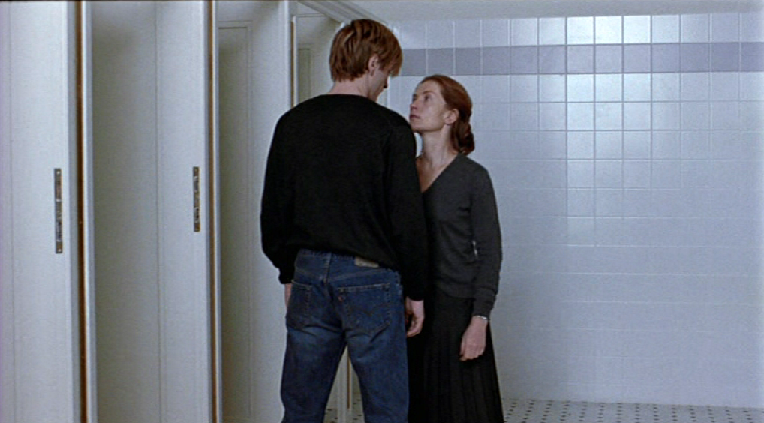
Sorry for the lack of posts recently. I went on vacation and Conor is Conor. I decided I wanted to do my first movie post, but I couldn’t think of a single movie to write about so I’m going to talk briefly about Austrian filmmaker Michael Haneke.
Haneke has 10 feature films to his credit, however one of these films was a shot-for-shot US remake of his 1997 film, Funny Games and his latest film, The White Ribbon has yet to be released in America (although it did win the Palme d’Or at Cannes this year). Of these 8 remaining films, I’ve seen three: Funny Games, The Piano Teacher, and Caché.
Pegging down Haneke’s style is very tough to categorize. Most viewers often marvel at his ability to create suspense, some are appalled by his use of violence and sexuality. The only unifying theme in Haneke’s films is his depiction of the moral degradation of modern society.
Certainly Haneke’s most “prolific” film, at least in the
Certainly Haneke’s most “well-recieved” film, at least overseas, the Piano Teacher won the Grand Prix at Cannes, and its lead actress Isabelle Hupert received huge praise for her portrayal of an emotionally and sexually repressed piano instructor. Through the first and second act, Hupert portrays her character as a cold, emotionally-detached, controlling professor who demeans her students for each of their mistakes. However, Haneke allows us a slight glimpse into the character when he shows her enter a adult-themed stores jerk-off hut. (I don’t know what they’re actually called). The woman sits down and watches the movie playing analyzing it as if it were another piece played by one of her pupils, staring at the two actors fucking with a mixture of contempt, jealousy, and loneliness. She looks to the trash can next to her and sees a recently used tissue and holds it up to her face and gently presses it against her lips. Haneke gets the most out of Hupert’s performance by often allowing the camera to linger long after the scene should have ended. We see the pain in Hupert’s face, in her movements, and in the emptiness of the environment surrounding her. That’s really all I want to write about this movie, even though there’s so much more to it. Just watch this for Hupert’s performance, the confusing, morally ambiguous climax, and the crushing resolution.
Certainly Haneke’s most “good” film, at least in my opinion, Caché makes the most out of nothing. I’ve always been a fan of minimalism in all its forms, and Caché is perhaps one of the most minimalist films I’ve ever seen and just executed so perfectly. The plot of the film is simple. A family starts receiving video tapes showing their house is under surveillance. The father investigates the situation and finds the surveyor is a ghost from his past. I don’t really know what else to say; just watch the movie to see how Haneke creates incredible suspense where there isn’t any.




No comments:
Post a Comment